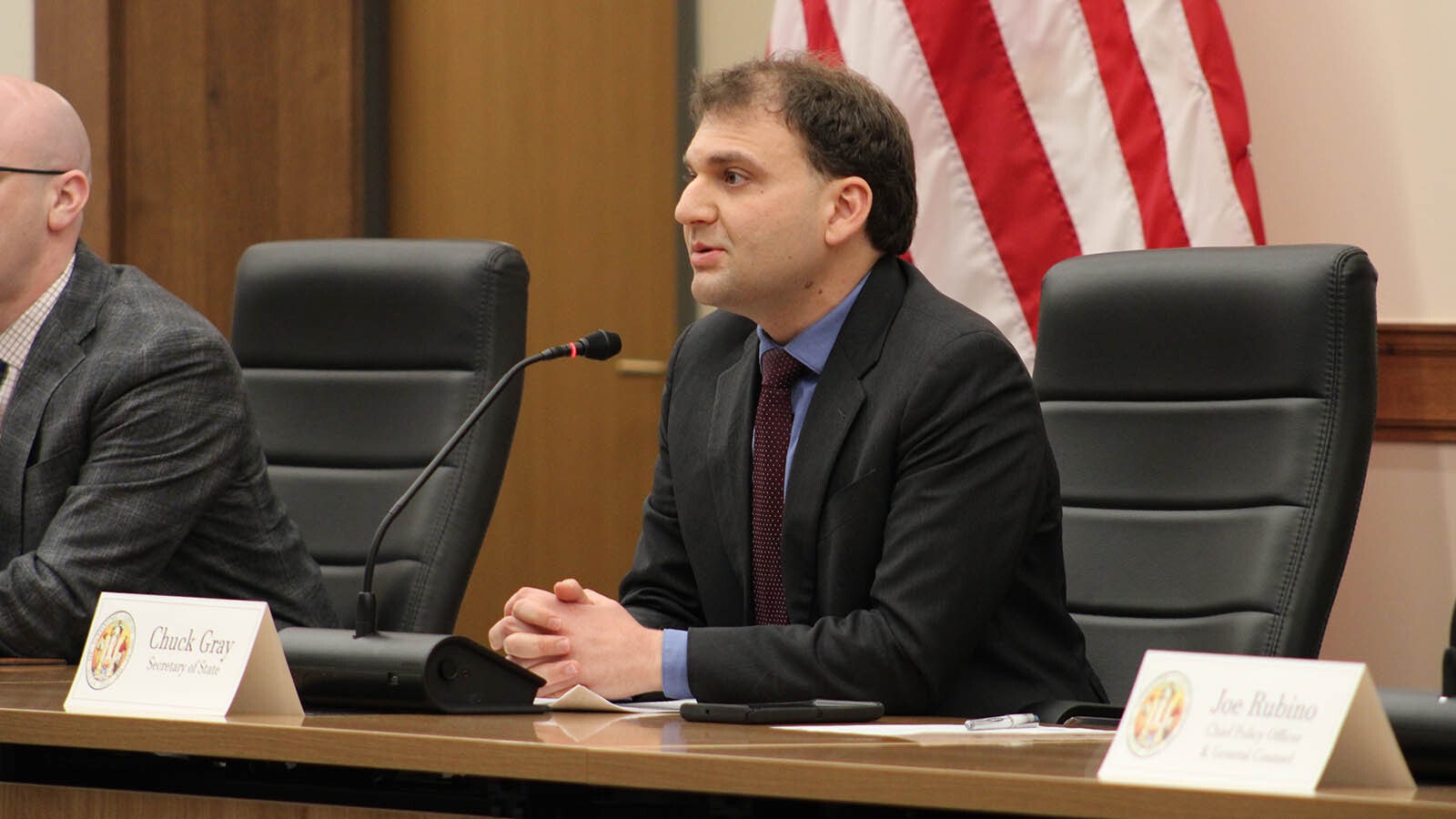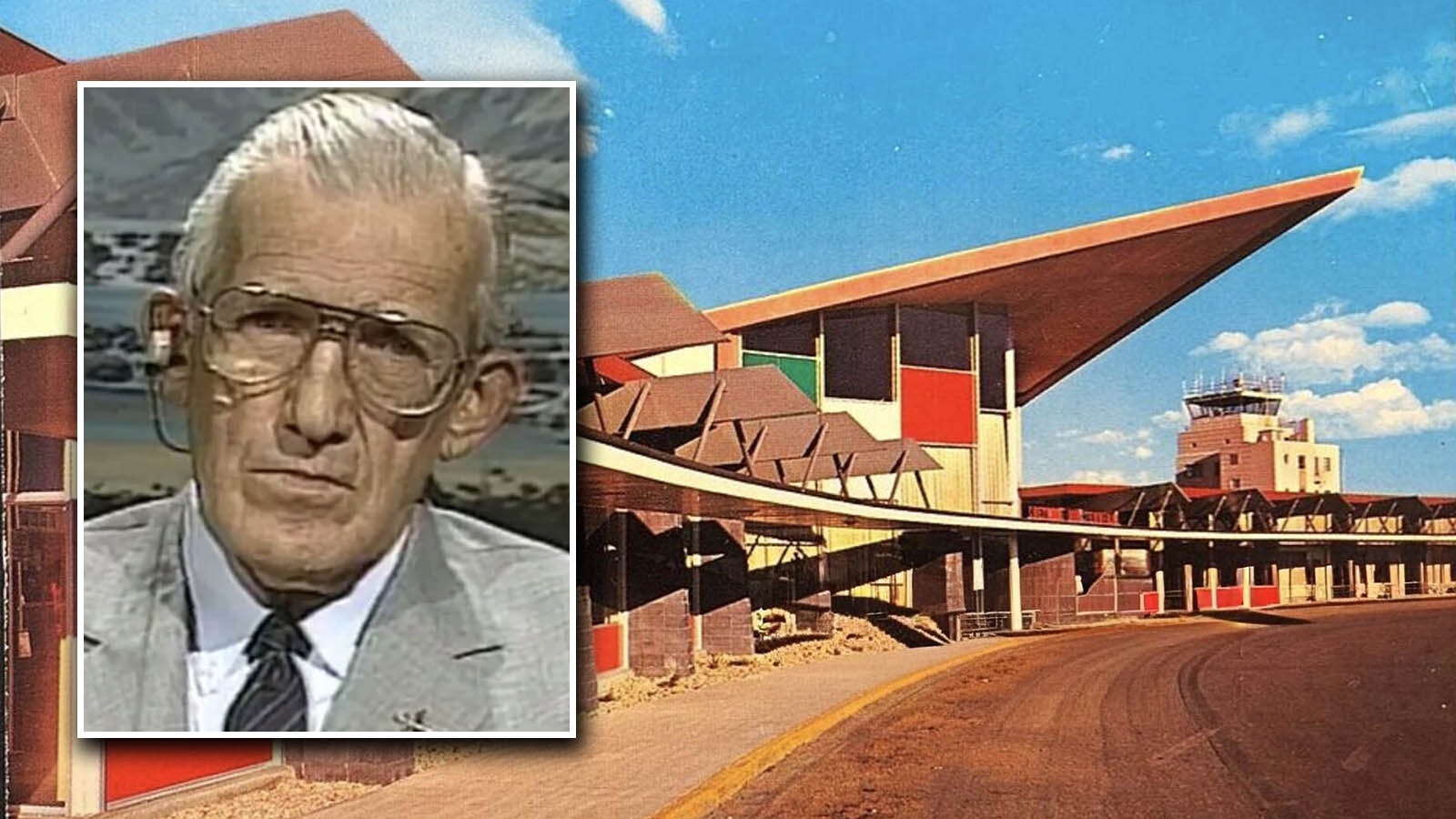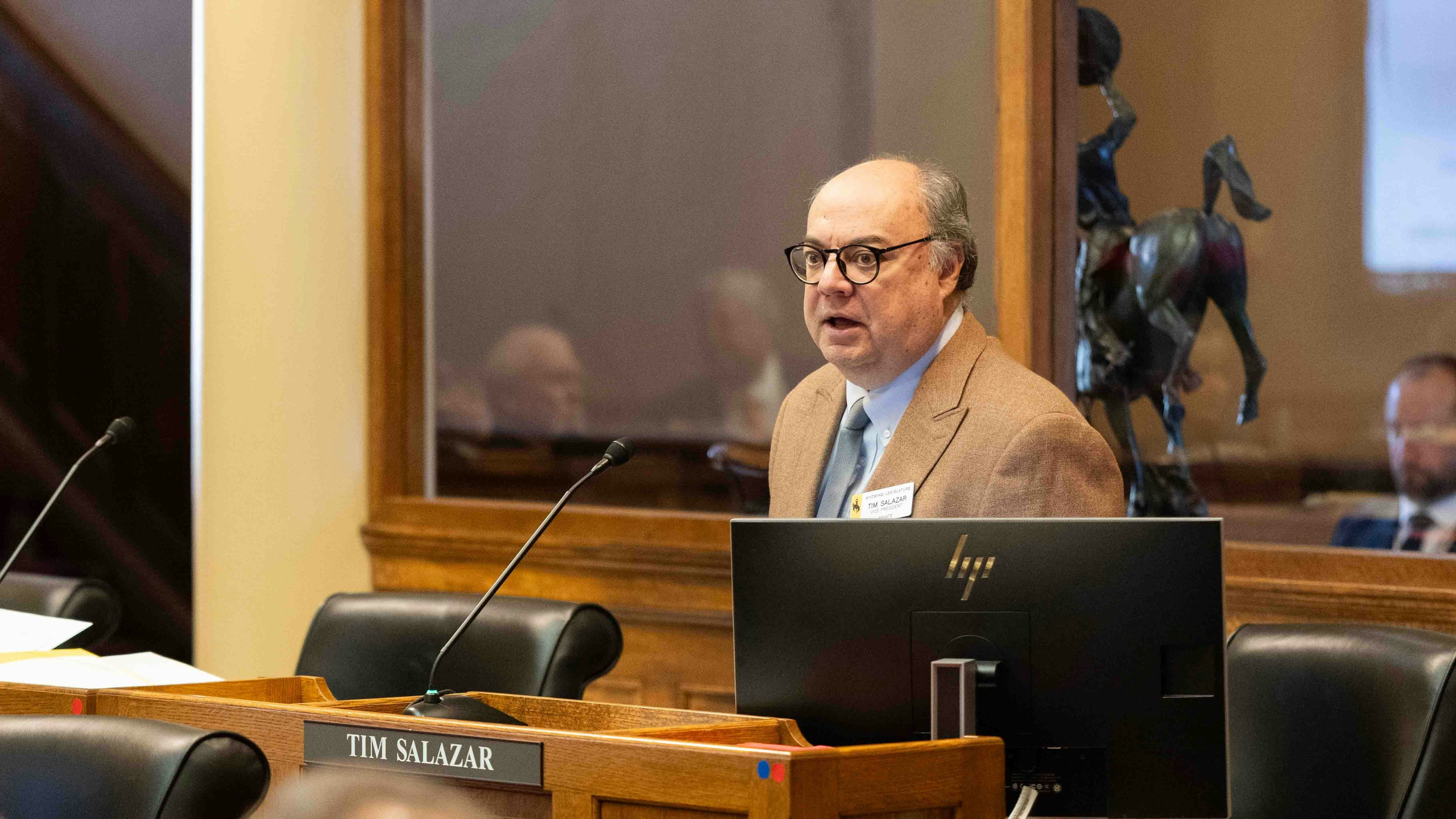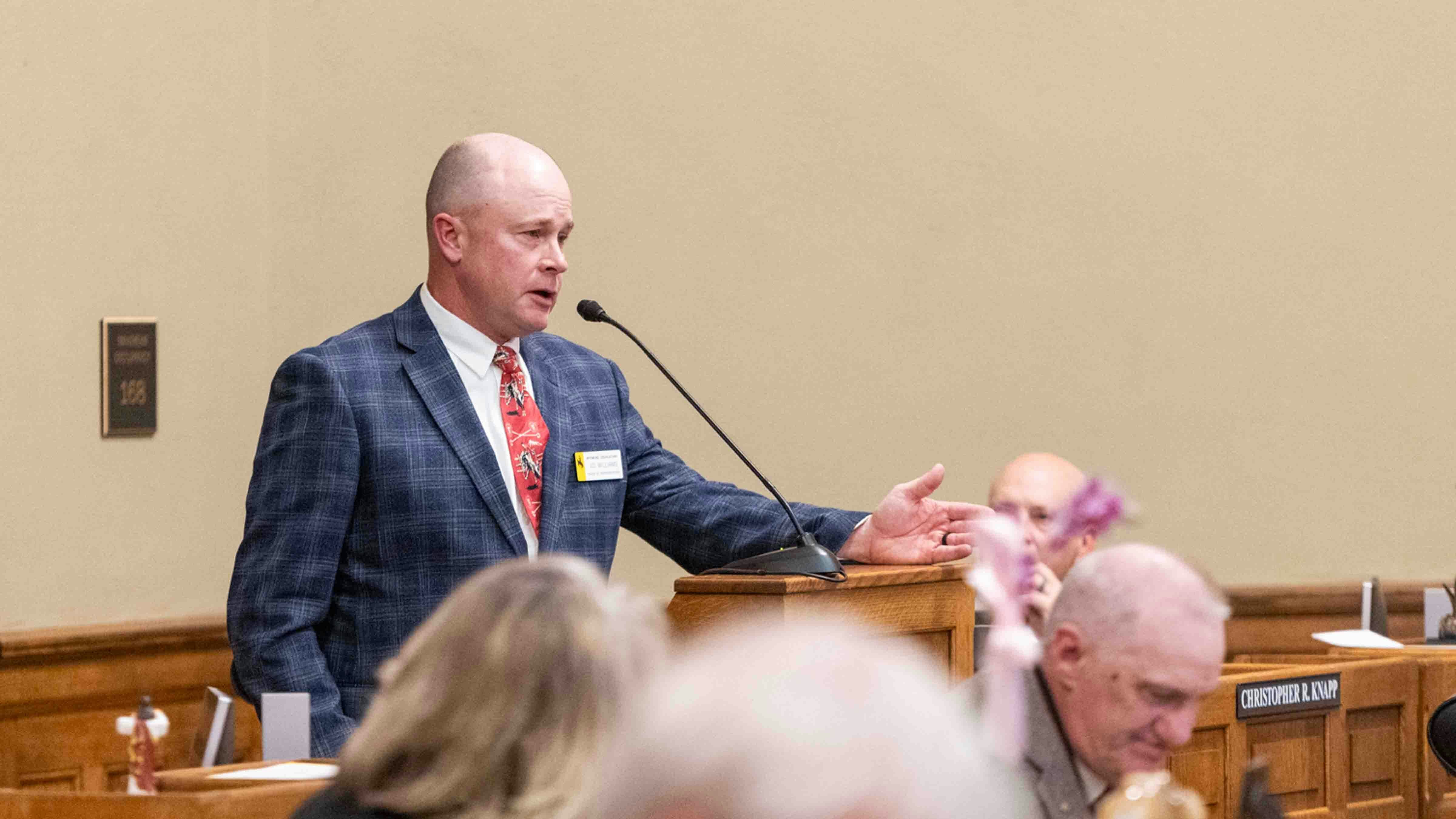Secretary of State Chuck Gray wasted no time accusing the press of misleading the public about his new proposed voter residency rules during a hearing at the State Capital on Friday.
“The media has published a number of articles with misleading statements that have caused confusion about what these rules do,” Gray said.
If finalized, the new rules would require people registering to vote in Wyoming to show an additional proof of residency if their identification doesn’t already show it.
Gray said it’s difficult to prove only Wyoming residents are voting in the state’s elections without this rule. Although Wyoming is overwhelmingly Republican and with very few issues of election fraud proven in the past, Gray said proving residency is pivotal to maintaining election integrity and voter security.
“One of the key questions that I hope to hear from you about today is whether that is just going to be a slogan that isn’t followed through upon, or whether it will be followed through upon with real teeth, which is what this rules does,” Gray told the audience.
There were about 100 people at Friday’s hearing and around 150 more watching live online. The majority of the public comments, in person and online, were in support of the proposed rules, many from prominent members of the Wyoming Republican Party.
Although the hearing was intended for the public to provide feedback on the proposed rules, at many instances the hearing devolved into a back-and-forth between members of the audience criticizing arguments made by others.
Illegals Voting?
Gray and many others also expressed concerns about illegal aliens voting in Wyoming elections. There have been no documented cases of this happening. Although Wyoming law already prohibits people in the country illegally to vote, Gray’s rules further clarify the point.
Laramie resident Paul Montoya and others said the recent influx of illegal immigration across the southern border should be a concern for Wyoming’s elections.
“We should be proactive in making sure there’s not a problem in Wyoming,” he said.
Sheridan political activist Gail Symons believes this is unfounded.
“The fears of mythical busses of out-of-state people showing up to register and vote is unsubstantiated both from a practical standpoint and the data,” she said.

Legislators Weigh In
There have been three cases of prosecuted election fraud since 2000 in Wyoming, according to the Heritage Foundation. Some who spoke at Friday’s hearing said they see this not as proof there’s no election fraud, but rather that Wyoming needs to tighten its voter requirements to test if more fraud is happening than what’s being reported and prosecuted.
State Reps. Tony Locke, R-Casper, and John Bear, R-Gillette, said they support the proposed rules and believe they will show if there is more election fraud in Wyoming than what is now known about.
“If we don’t know what the effect of not having these rules is, how can we possibly know whether the Legislature is going to enact statutes that will impact the voters?” Bear questioned.
A few from the public went further and made claims they know of people who are not Wyoming residents or American citizens who have successfully voted in Wyoming elections.
Overall, seven state legislators spoke at the hearing.
State Sen. Cale Case, R-Lander, was the most critical of the lawmakers about the proposed rules, saying they subvert legislative authority.
Rep. Sandy Newsome, R-Cody, agreed with Case and said Gray doesn’t have authority to do what he wants to.
“The Legislature should pass laws, not the secretary of state,” she said.
Newsome also said she is “disappointed” that Gray is bringing his rule now, and that he never discussed the proposal in any of the legislative Corporations, Elections and Political Subdivisions Committee's interim meetings in 2023. She asked Gray to wait until a 30-day durational bill is addressed during the upcoming legislative session before enacting the rules.
“This is premature on your part,” she said.
Gray pushed back, saying he did bring up his proposal during the committee’s meeting in October.
Rep. Mark Jennings, R-Sheridan, also countered on Gray’s behalf and said the same people opposing the rules also support superfluous rulemaking in other agencies.
Clerks Don’t Support
Gray noted that he took four meetings with the state’s county clerks and sent extensive emails about the proposed rules before announcing them. Earlier this month, the clerks sent a memo expressing “significant concerns” about them.
Malcolm Ervin, Platte County clerk and president of the Wyoming County Clerks’ Association, spoke against the proposed rules Friday and said working with Gray on them isn’t an endorsement.
Although he admitted to Cowboy State Daily that Gray’s rules probably won’t impact a significant number of residents, Ervin said people would be surprised to learn how many people they will affect.
Teton County Clerk Maureen Murphy mentioned how many people in Teton County routinely change residences from year-to-year because of high housing prices in that area. She said the new rules would make it more difficult for these people to vote unless they lied about their residency.
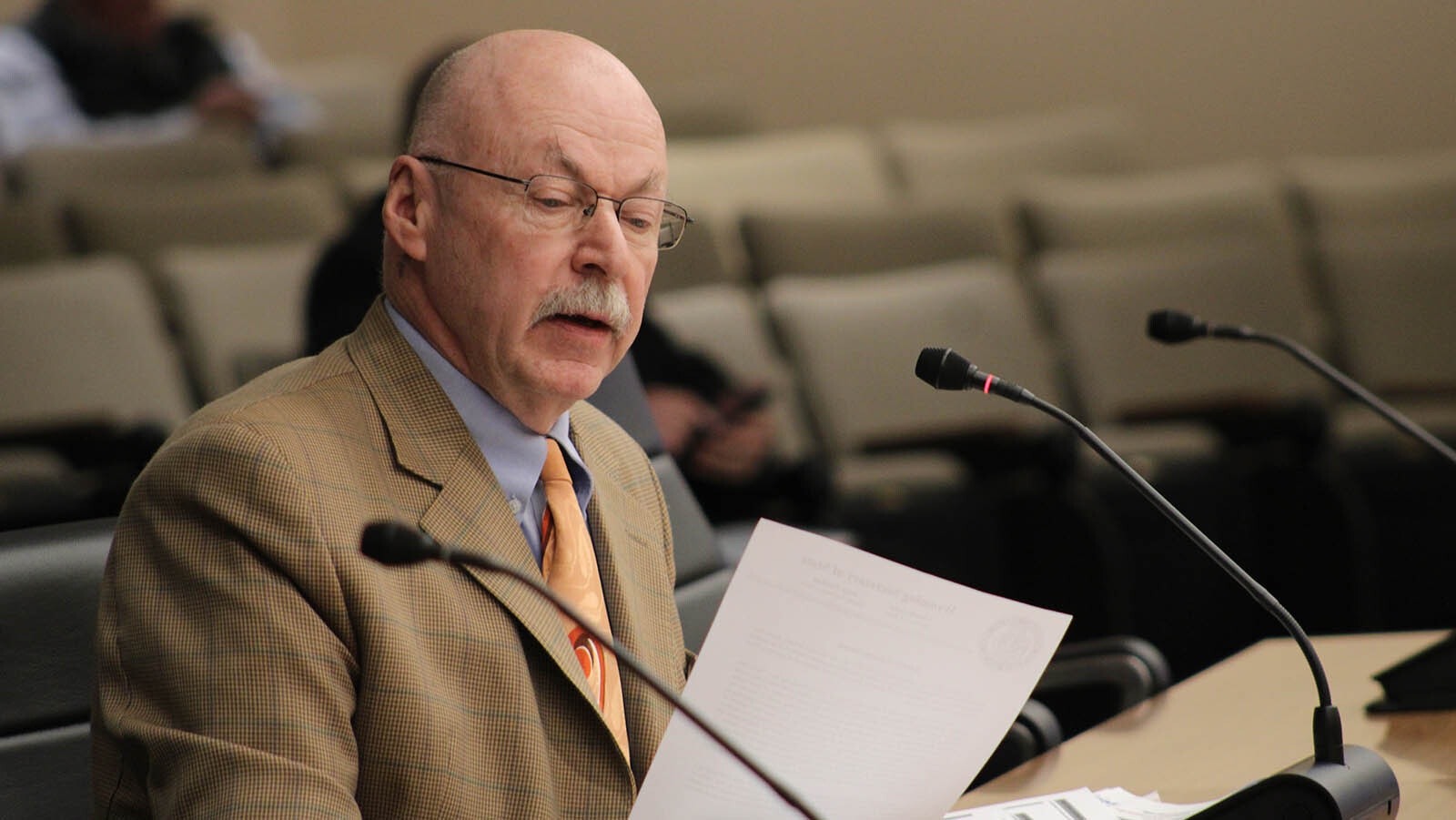
Effort To Vote
Case also expressed concern the rules will suppress voter turnout. Specifically, he said some living on the Wind River Reservation, where many voters live a transient lifestyle, will have to clear significant hurdles to be able to vote. The rules also put new requirements on homeless people proving their residency.
“There’s a significant chance of harm but not much chance of benefit,” Case said.
Others supporting the rules said illegal voters “disenfranchise" the efforts of legal voters and that meeting the burden of proof to show one’s right to vote is a matter of self-responsibility, not for Gray to facilitate.
Saratoga resident Joey Correnti also said there’s nothing stopping voters rights groups from helping people prove their residency, and a few encouraged Gray to establish a robust informational campaign to inform voters about the changes being proposed less than 200 days before the primary election.
Cheyenne resident Richard Garrett encouraged Gray to consider senior citizens like his late mother, who would’ve been impacted by the new rules if she were still alive, and Ervin said his grandmother would be affected.
Gray said he will do so.
“We’re working to get that balance right, because it is a balance,” Gray said.
Ervin also worries that the rules aren’t being brought without enough time for county clerks to prepare for them in the upcoming elections, and that the changes could lead to much longer lines at polling places on Election Day.
One of the biggest concerns the clerks and others have raised about the rules is that they will require people who have a P.O. box listed on their IDs to supply an additional form of identification to prove residency. There are many driver’s licenses provided by the Wyoming Department of Transportation that only have a P.O. box listed as a form of address.
Gray said he will consider a revision to the rules that would limit them to only requiring an ID showing Wyoming residence. Ervin said the clerks would be more supportive of that.
“That would provide some advancement in ensuring only residents of the state of Wyoming can register to vote and provide a bridge to when WYDOT will be in compliance in statute,” Gray said.
But some of Gray's supporters also urged him to push back on this, noting how proof of residency is required to get a P.O. box or a driver’s license in the first place.
Not Durational
Gray also blamed the media for its reporting of a separate legislative proposal he made last spring for a 30-day residency requirement with his proposed new rules, two measures he says are not connected.
“It’s caused a lot of this confusion what the media has reported,” Gray said.
In August, when the durational residency requirement proposal was first considered by the Corporations Committee, Ervin mentioned how the state has no laws proving definitive proof of residency and that the 30-day residency requirement wouldn’t resolve that.
"Without proof of residency to address the issue, there is still a huge hole in our state’s approach to residency,” Gray explained.
Under current law, only election judges can challenge a voter’s residency status in Wyoming.
Out-Of-Staters
A few who testified also wondered about out-of-state voters participating in Wyoming elections.
Rep. Scott Smith, R-Lingle, said he knows of “numerous” people who used out-of-state identifications to vote in the 2022 elections.
“I think that’s an important thing to stop,” he said.
It's legal to use an out-of-state ID to vote in Wyoming, but this comes with a few stipulations. First, Wyoming law requires residents to notify WYDOT within 10 days when moving within the state. New residents have a year to get a license when moving to the state. Second, those registering to vote swear an oath that they are legal in-state residents.
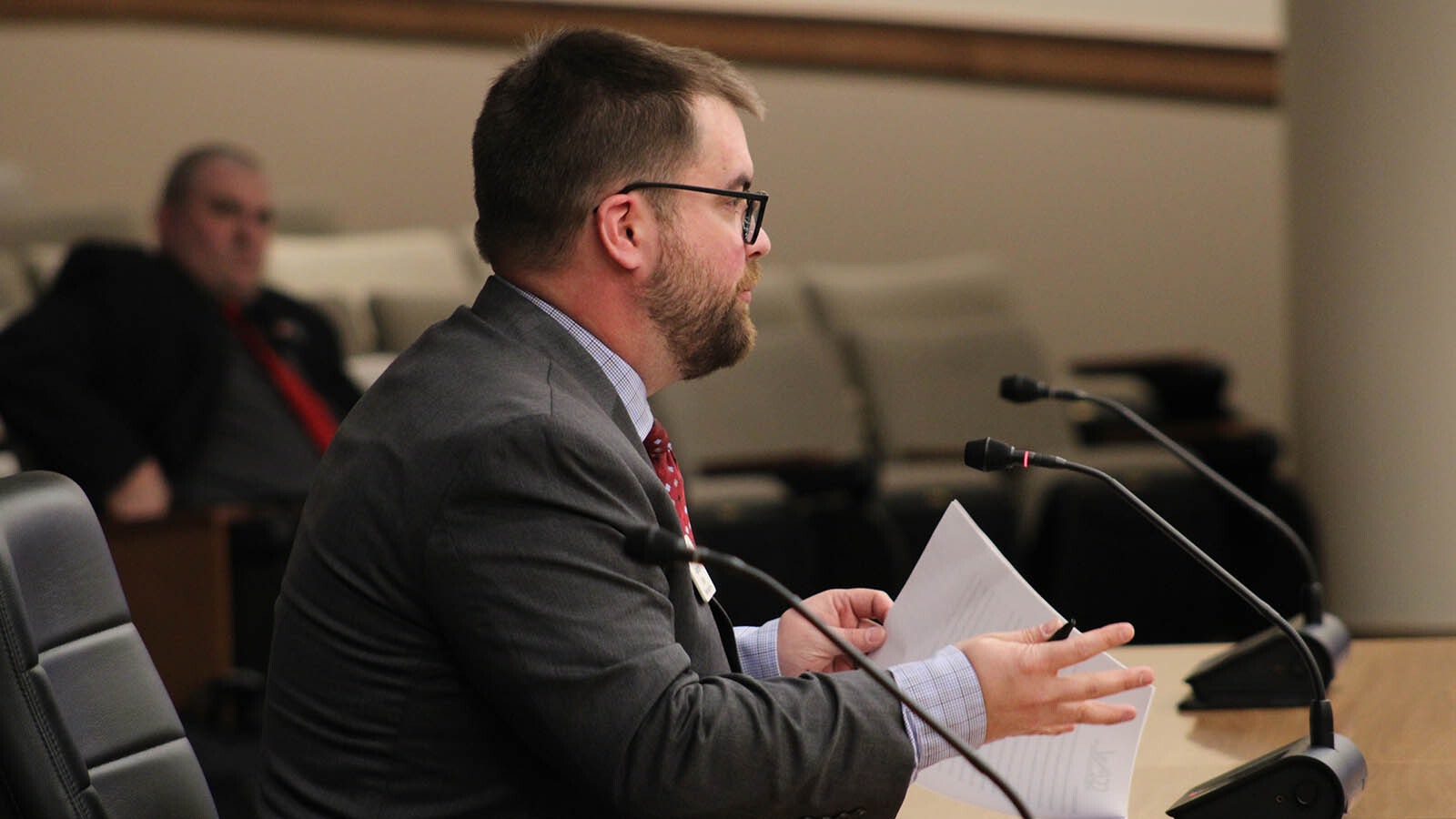
Leo Wolfson can be reached at leo@cowboystatedaily.com.

